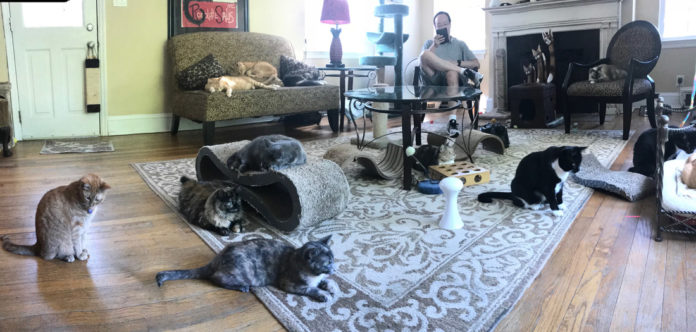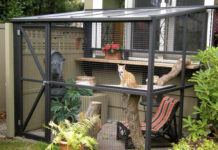Written by Sparrow Marcioni
Why do cats purr? Mostly commonly, they purr when they’re content and safe, but they also do so if they are injured or sick.
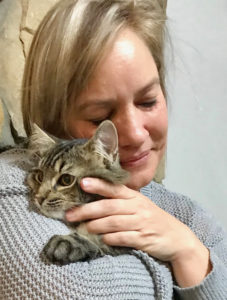 Mother cats purr to nurture and comfort their kittens. Purring can even help a cat to heal itself or others from sickness or injury. However, determining “how” a cat purrs is considerably more complicated.
Mother cats purr to nurture and comfort their kittens. Purring can even help a cat to heal itself or others from sickness or injury. However, determining “how” a cat purrs is considerably more complicated.
Theories on how a cat purrs abound, but the most current explanation is that their brains send a rhythmic, repetitive neural oscillator to the laryngeal muscles, causing them to twitch at a rate of 25 to 150 vibrations per second. This causes a separation of the vocal cords during both inhalation and exhalation, creating a unique feline vibrato. From pumas to domesticated felines, all cats large and small purr at the same vibrational frequency. These frequencies between 25 and 150 at low decibels are known to benefit healing.
Recent studies found exposure to frequencies between 25 and 50 Hertz strengthens bone density by 20% and stimulates the healing process. Substantial documentation also indicates these low frequency vibrations induce pain relief and healing of muscles and tendons. Their purrs are an internal healing mechanism — a sort of built-in massage.
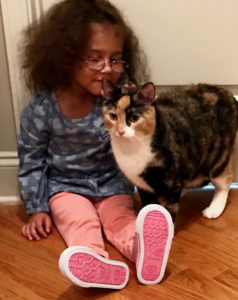 Even some veterinarians have found that having an injured cat together with a healthy one will help the injured cat heal more quickly.
Even some veterinarians have found that having an injured cat together with a healthy one will help the injured cat heal more quickly.
This remarkable healing capability also works on humans. At La Maison du Chat, a cat cafe and adoption center in Buford, around 50 cats lounge and play in a comfortable home setting where guests can find their new kitty or just spend time with them.
Often, visitors come to heal everything from recent surgeries to emotional trauma and loss, and it’s not uncommon to have guests feel so relaxed, they fall asleep with one or more of the feline residents. One visitor, who comes to read to the cats as a form of meditation, says it calms her and has helped her heal from the loss of her husband. Another frequent visitor comes to play with the cats as a form of stress relief from veterinary school.
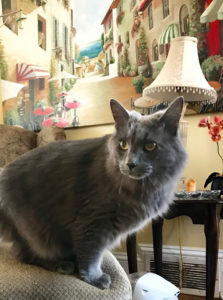 Cat-loving visitors come from all walks of life, from a sister of the local Catholic parish to race car drivers. All find solace in spending time with these feline purring machines.
Cat-loving visitors come from all walks of life, from a sister of the local Catholic parish to race car drivers. All find solace in spending time with these feline purring machines.
Sparrow Marcioni is the chief animal behaviorist at La Maison du Chat, a Reiki practitioner and founder of CatRangers Rescue. She is available for consultation by emailing sparrow@catrangers.org or by calling 770-831-5513.

